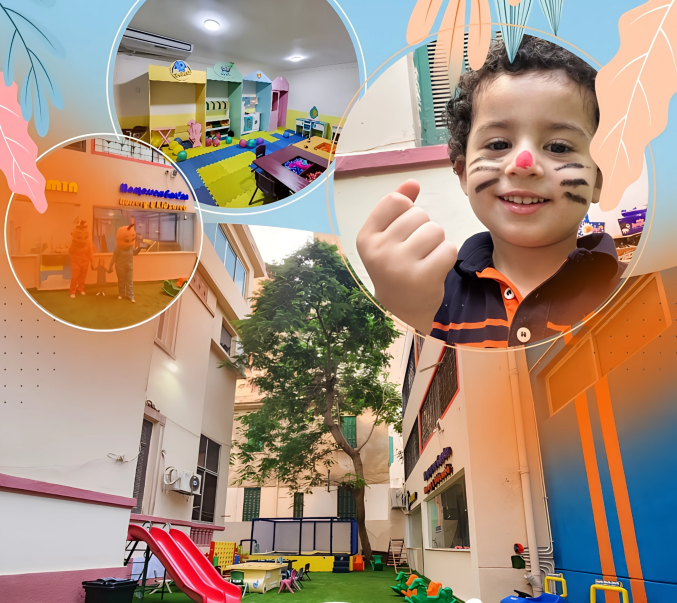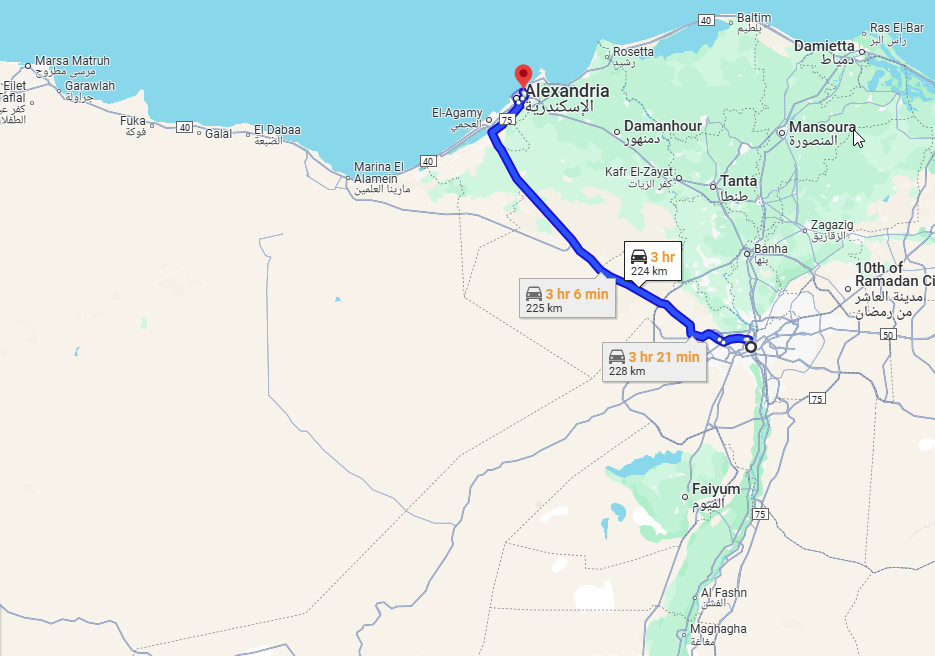Jasmine Montessori Garden Nursery provides a comprehensive educational environment focused on the child's psychological, cognitive, social, and behavioral development, with emotional support and positive interaction. We rely on the integrated Montessori approach, combined with modern educational methods that blend science and innovation, to offer an advanced learning experience. We believe in the uniqueness of each child and work to discover their talents and build their self-confidence through play and experience. Our vision is for the nursery to be a safe and stimulating space for growth, where the child can express themselves, make decisions, and develop in a joyful and caring environment.
Jasmin's Montessori Garden Nursery
Jasmine Montessori Garden Nursery provides a comprehensive educational environment focused on the child's psychological, cognitive, social, and behavioral development, with emotional support and positive interaction
- Phone: 01555221868
- Website:
- Opens at: 08:00
- Closes at: 22:00
Working Days
Sunday
Monday
Tuesday
Wednesday
Thursday
🌸 Jasmin's Montessori Garden Nursery & Kidz Area
🗓️ Age Group: From 3 months to 6 years
🌐 Main Language: English
🏡 About Us
🏆 Our Highlights
🧠 Psychologically-Oriented Programs: Continuous behavioral support and confidence-building strategies
📘 Modern Education: STEAM-based learning to develop creative and critical thinking
🧩 Daily Montessori Activities: Sensory learning that encourages independence and comprehension
🌳 Outdoor Play Area: Safe, fun garden space for physical activities
🧕 Qur’an Learning: Fun, age-appropriate memorization sessions to teach values and faith
🍽️ Healthy Meals: Fresh and balanced food that supports children’s immunity
🩺 Medical Care: Weekly health check-ups to ensure overall wellness
🖼️ Arts & Crafts: Workshops to nurture creativity and expression
🎶 Music Activities: Rhythmic play and sound exploration
📊 Progress Reports: Regular updates on your child’s developmental journey
🧸 After-School Hosting (for older kids)
📚 Educational Activities
Our well-designed educational program includes:
🔤 Interactive English learning through stories and songs
📖 Qur’an memorization and moral education
🧮 Simple STEAM-based math and logic tasks
🧠 Critical thinking and problem-solving games
✏️ Fine motor skill activities and pre-writing exercises
👥 Social interaction and teamwork skill development
🌈 Recreational & Creative Activities
Because play is the foundation of learning, we offer a wide variety of fun activities:
🎨 Art workshops: painting, coloring, crafts
🎶 Daily music sessions with kid-friendly instruments
🎭 Puppet shows and storytelling for imagination
🧘♀️ Kids mindfulness and relaxation time
🚲 Outdoor games for balance and physical growth
🧩 Puzzle and logic games for brain development
🎈 Seasonal parties and fun days
👩🏫 Our Team
At Jasmin’s Nursery, our staff includes:
👩⚕️ Child psychologists and behavioral specialists
👩🏫 Experienced early childhood educators
🎨 Arts & music specialists
🧘♀️ Sensory and motor development trainers
We work as one team with a mission to turn every moment into a learning opportunity.
📝 Conclusion
At Jasmin’s Montessori Garden Nursery, we believe every child deserves a safe, loving, and stimulating environment.
We are more than just a nursery — we are a space for growth, imagination, and confident beginnings.
Join us today and give your child the chance to shine, explore, and grow happily in a secure and inspiring environment.
FAQ
Nurseries in Egypt are divided into several types based on their goals and educational content, including:
1. Educational Nurseries:
Focus on teaching children the basics of reading, writing, and languages. They often follow curricula like Montessori or the British system.
2. Developmental Nurseries:
Aim to enhance social and behavioral skills such as discipline, cooperation, and independence.
3. Religious Nurseries:
Focus on Quran memorization and teaching religious values and ethics in a conservative environment.
4. Specialized Nurseries:
Cater to specific groups such as:
Children with special needs.
Language-focused nurseries (e.g., French – German).
Art or sports-oriented nurseries.
5. Governmental and Private Nurseries:
Governmental: Low-cost and supervised by the Ministry of Social Solidarity.
Private: Run by individuals or private institutions, and vary in quality and services offered.
Tip: Choosing a nursery should be based on the quality of care, safety, and the level of individual attention given to each child.
The Egyptian law outlines several key objectives that nurseries aim to achieve, including:
1. Comprehensive Social Care:
Providing a safe and stimulating environment that takes care of the child physically, psychologically, and socially.
2. Development of Skills and Abilities:
Supporting children's talents and discovering their abilities through age-appropriate educational and recreational activities.
3. Integrated Preparation:
Preparing the child physically, culturally, psychologically, and morally in alignment with Egyptian societal values and religious identity.
4. Communication with the Family:
Raising awareness among parents and providing educational guidance to support proper parenting at home.
5. Strengthening Social Bonds:
Building a strong, interactive relationship between the nursery and the child’s family to ensure a continuous, well-rounded environment for growth and learning.
Note:
Nurseries are not just places to keep children, but they are key partners in education, laying the foundation for a strong and socially responsible personality for the child.
Nurseries have several important aspects that contribute to the child’s overall development:
1. Educational Aspect:
By providing educational and developmental activities, such as learning numbers, letters, and language basics, nurseries help children develop their cognitive skills.
2. Social Aspect:
The nursery provides a social environment that allows children to interact with their peers, learning communication skills, cooperation, and problem-solving.
3. Emotional Aspect:
Through emotional support from teachers, children learn how to manage their emotions and develop self-confidence.
4. Physical Aspect:
Physical activities help children develop fine and gross motor skills, such as running, jumping, and playing with educational toys.
5. Creative Aspect:
Creative activities like drawing, modeling with clay, and music help enhance children's imagination and boost their creative skills.
All these aspects work together to develop a well-balanced personality in children, enabling them to adapt to various aspects of life.
Here are 8 steps to ease the child’s transition to pre-school:
1. Visit the school together:
Introduce the child to the school environment beforehand so they can acclimate to it.
2. Meet new friends:
Encourage the child to meet other children so they can make new friends.
3. Role-play school:
Use school-related games at home to demonstrate the daily school routine.
4. Turn skills into games:
Make learning skills like dressing fun and engaging for the child.
5. Talk about your experience:
Share your own school experiences to create a positive image of school for the child.
6. Establish a new routine:
Set a regular daily routine to prepare the child for school.
7. Listen to your child:
Pay attention to the child’s feelings and concerns about school.
8. Create a comforting goodbye plan:
Make the child’s farewell comfortable and encouraging.
These steps help ease the child’s transition to a new stage.
Nursery is extremely important for children because it helps prepare them for the next educational stage and promotes their social and cognitive development. Through nursery, children learn how to build social relationships outside of the family, which enhances their communication and cooperation skills.
Nursery also contributes to developing critical thinking in children, helping them understand and analyze situations more effectively. It encourages a positive attitude towards learning, fostering their love for exploration and independent learning.
Additionally, nursery helps build the child’s self-confidence, which enables them to adapt better to the school environment in the future and enhances their ability to persevere and succeed.
Public Universities
Private universities
International universities
Accredited higher institutes
Government schools
Private schools
International schools
Language schools
Al-Azhar Schools
Special education schools
STEM schools
Teachers and lecturers
Nurseries
Language education centres
Programming and technology centers
Medical Training Academies


